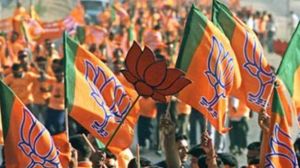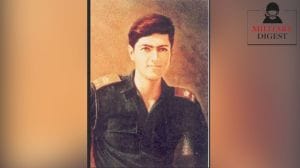Quake rescued an Indian spy
His dark, long-nosed face blazes up with a broken dentured grin as he squints the Pakistani post atop a high cliff behind the last Indian ri...

His dark, long-nosed face blazes up with a broken dentured grin as he squints the Pakistani post atop a high cliff behind the last Indian ridge on the Line of Control LoC. A tribal version of Agent 007, Khadim Khan8217;s story has a perfect script for a Bond movie.
An illiterate Gujjar herdsman, he knew these Himalayan frontiers like lines on his palm. Often, he sneaked into Pakistani Army lines easily and returned to his home in Guvalta, the last village on the LoC. He was an Indian spy living on the edge for years. Finally, he was caught by the Pakistan Army and put in a cell in Muzaffarabad. After three years, his family lost hope as well.
Then the earth shook on October 8 demolishing walls of the prison and setting him free. He walked for hours amid debris and reached home to see a shocked reaction from his wife, and seven children at their crumbles house. 8220;My wife was sobbing, and my children trying to salvage whatever they could from the debris,8221; says Khadim.
In trademark Gujjar turban and a loose, flowing dress, he looms conspicuously on the terraced spur of the mountain, framed amidst the craggy peaks.
8220;When they saw me, they were scared. They thought I was a ghost; I had to convince them that I was real. Then there was joy. The children hugged me, and we cried,8221; Khadim says. In Guvalta, where 75 people were killed by the quake, this was the only family which wept to celebrate.
8220;It was strange. It was like the earthquake had killed 75 villagers and returned one from death to life,8221; says Muhammad Farooq of Guvalta, amid nods from huddled fellow villagers. 8220;For us, he was like a dead man walking.8221;
His escape is perhaps the first eyewitness account of the devastation wreaked by the quake. Cramped up in his cell with twenty others, he saw the walls cave in around him killing most prisoners. There was a levelling all across, even of the LoC. 8220;I did not know where Pakistan ended and India started. I almost sleepwalked through the journey,8221; he adds.
Khadim had disappeared from the village around four years ago. Nobody knew his whereabouts. For his family, he had gone on an important assignment and would return soon. They did not know that in 2002. 8220;I had given up hope of release till the temblor occurred. It was like doomsday; Walls crumbled, and most of my fellow prisoners died; only I miraculously escaped,8221; he added further.
Even now, the prison days haunt him. 8220;I wake up in the nights thinking I am still in the jail,8221; he says. In prison, he was unaware of the significant developments over the recent years, nor of the opening of the Srinagar-Muzafferabad Road. 8220;It was a life locked out from the outside world,8221; says Khadim as he looks over again at the Pakistani post, this time his face is grim and glint in his eyes mellowed.
- 01
- 02
- 03
- 04
- 05































